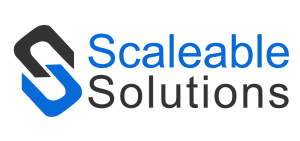Objective:
To optimize document handling in hotels, improving operational efficiency, ensuring data security, and maintaining regulatory compliance.
Scenario:
A hotel chain struggles with managing large volumes of guest records, contracts, invoices, and compliance forms. The current manual, paper-based system leads to inefficiencies, lost documents, delayed processes, and risks of non-compliance.
Solution: Document Management System (DMS)
Centralized Document Storage:
The DMS provides a secure, cloud-based repository where all hotel documents are stored, including guest records, invoices, contracts, and regulatory forms. Authorized personnel across departments (front desk, housekeeping, finance, HR) can access documents in real-time, ensuring everyone works with the latest information.
Automated Workflows:
The DMS automates tasks such as contract approvals, guest check-ins, and invoice processing. For instance, when a guest makes a reservation, the system automatically generates and stores their booking records, making them instantly accessible to relevant departments, speeding up check-ins and reducing errors.
Compliance and Security:
Role-based access controls ensure that sensitive information, like guest personal data or HR files, is only accessible by authorized staff. The DMS also tracks and archives documents according to regulatory requirements (e.g., GDPR), helping hotels avoid fines and stay compliant with industry regulations.
Advanced Search and Retrieval:
The system offers powerful search capabilities, allowing staff to find documents using keywords, dates, or types. This feature is crucial for fast retrieval during audits or guest inquiries, cutting down the time spent searching through paper files or scattered digital documents.
Collaboration and Integration:
The DMS enables seamless collaboration across departments by allowing staff to work on documents simultaneously. It integrates with hotel management systems (HMS), ensuring that guest records, financial documents, and contracts are updated and managed in sync across systems.
Benefits:
Improved Efficiency: Automating workflows and centralizing document storage reduces the time spent on manual tasks, leading to faster check-ins, contract approvals, and document retrieval.
Cost Savings: The system reduces paper usage and physical storage costs. Additionally, by minimizing human errors and ensuring compliance, the DMS helps avoid costly fines or delays.
Enhanced Guest Experience: With quick access to guest records, staff can offer personalized services and handle requests or issues efficiently, leading to better guest satisfaction.
Security & Compliance: The DMS ensures secure data management, with role-based access and audit trails, while also helping hotels comply with regulatory standards, making audits smoother and less stressful.
Example:
A hotel using a DMS can automate the guest check-in process. Once a booking is made, guest documents are generated and available at the front desk, speeding up check-ins and providing personalized services. During a compliance audit, hotel managers can quickly retrieve all necessary documents, ensuring they meet regulatory requirements without scrambling for paper files.
In conclusion, a DMS significantly improves document management, enhances operational efficiency, reduces costs, ensures regulatory compliance, and elevates the guest experience, making it a critical tool for the modern hospitality industry.


